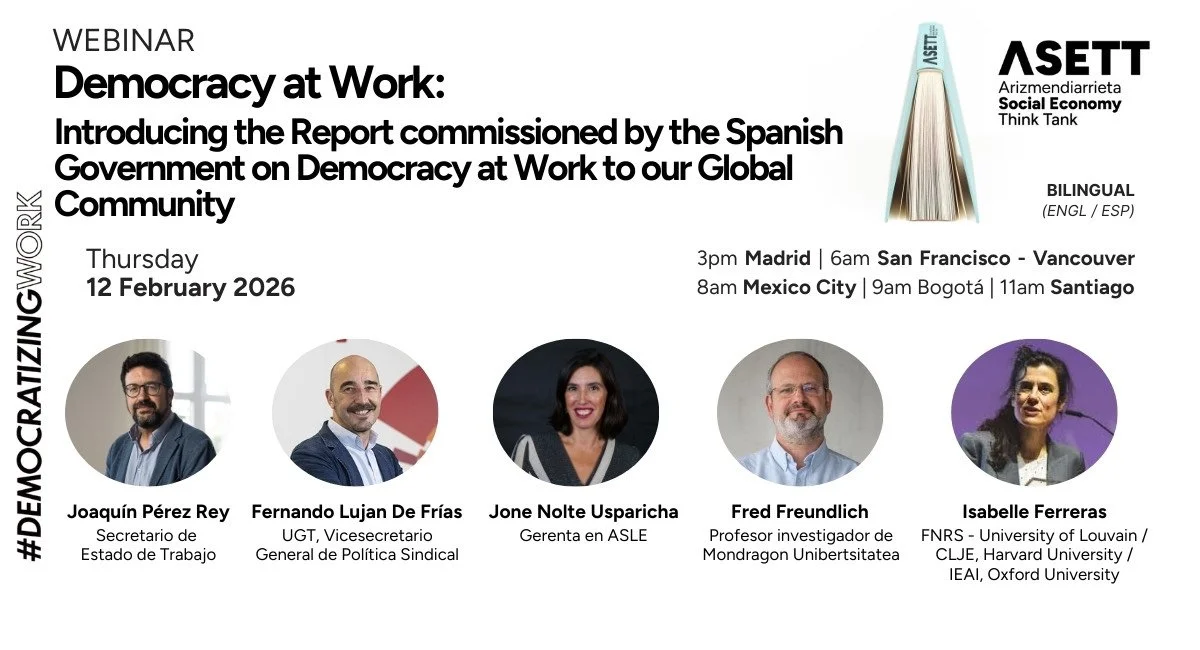GLOBAL WORKSHOP SERIES 2025-2026
After a successful year of collaboration in the #DW Global Workshop Series 2024-2025, we are excited to continue our partnership with ASETT for the academic year 2025-2026!
This year, #DemocratizingWork and the ASETT will host several new workshops, starting on February 12 , as part of our #DW Global Workshop Series. Together, we will explore fresh themes focused on reshaping work—not just for greater efficiency, but to create a future of work that is greener, more inclusive, and more democratic.
Save the date
Time: 6am San Francisco-Vancouver | 8am Mexico City | 9am Bogotá-NYC-Montréal | 11am Santiago | 3pm Paris | 4pm Johannesburg | 7:30pm New Delhi | 9pm Jakarta | 1am Sydney
26 March 2026: AI and Democracy at Work
23 April 2026: Democratizar el trabajo: Perspectivas iberoamericanas
More details, speakers, and registration information will follow soon.
12 February 2026: Democracy at Work: Introducing the Report commissioned by the Spanish Government to Democracy at Work to our Global Community
Time: 6am San Francisco-Vancouver | 8am Mexico City | 9am Bogotá-NYC-Montréal | 11am Santiago | 3pm Paris | 4pm Johannesburg | 7:30pm New Delhi | 9pm Jakarta | 1am Sydney
Location: online. Register here.
The Spanish report on Democracy at Work sets out a trajectory for all firms in Spain and a new compass at the EU level as the foundation for advancing democracy at work via worker access to voice and ownership, the two promises made to Spanish workers by the Constitution. These pillars provide a framework to strengthen workers’ participation, representation, and rights across diverse industries and contexts. By exploring the transnational dimension of democratization, the report also highlights how shared European standards can inspire broader change and cross-border collaboration.
Speakers: Joaquín Pérez Rey (Secretary of State for Labor (Spain)); Fernando Luján de Frías (Deputy General Secretary for Trade Union Policy, UGT); Jone Nolte Usparicha (Manager at ASLE); Fred Freundlich (Professor at Mondragon University); Isabelle Ferreras (FNRS/Université catholique de Louvain/CLJE, Harvard University/ IEAI,University of Oxford)
The recording is available below:

